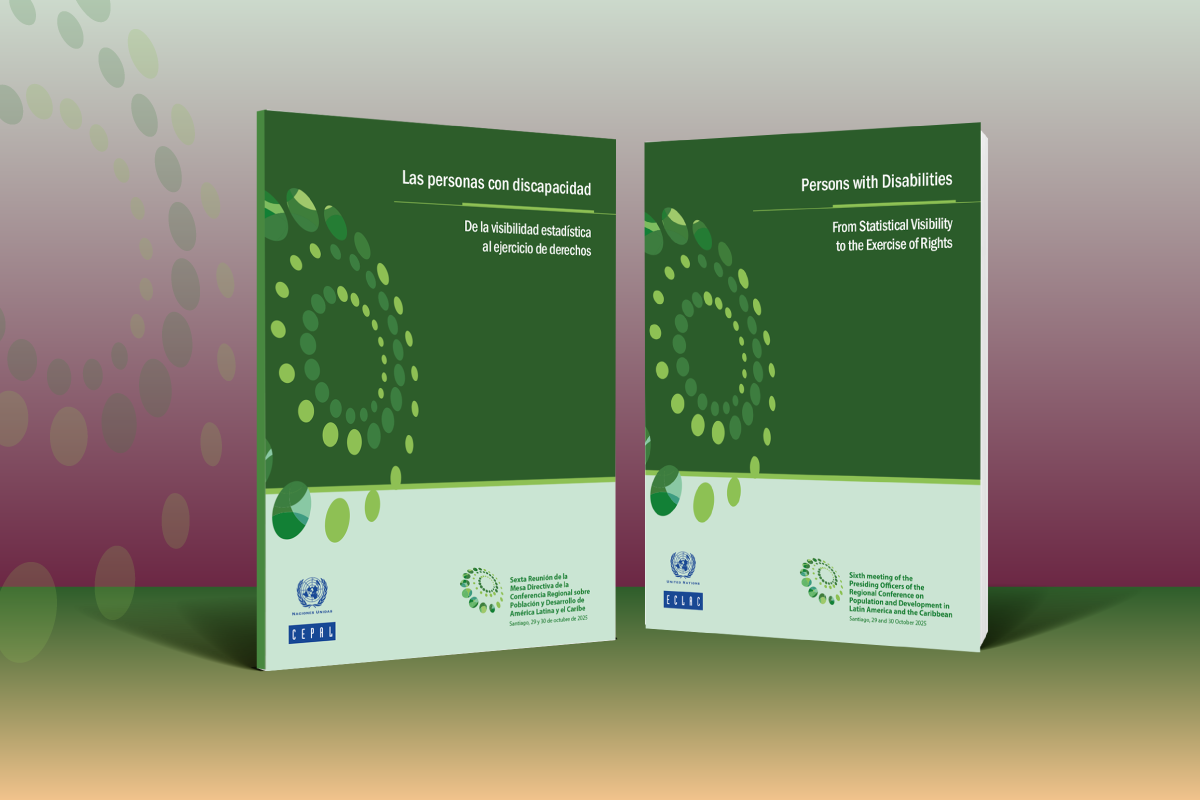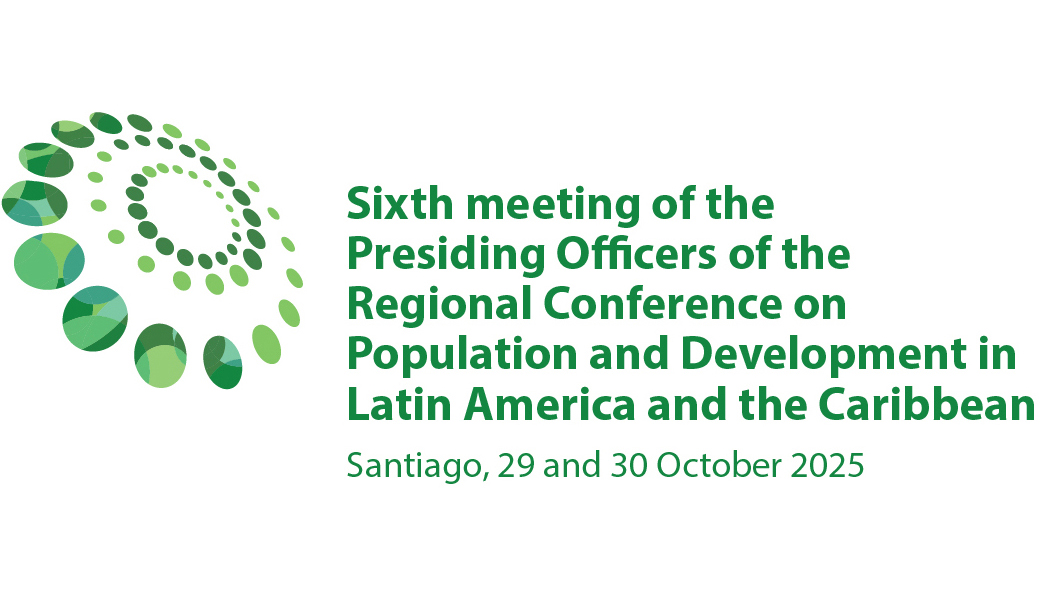A Social and Rights-based Approach is Crucial for Ensuring Full Participation of People with Disabilities and for Moving Towards a More Just and Inclusive Society
Work area(s)
Topic(s)
At least 6.5% of Latin America and the Caribbean’s population lives with some kind of disability, according to a new document by ECLAC that will be presented to countries during the Sixth Meeting of the Presiding Officers of the Regional Conference on Population and Development.

A social and rights-based approach is critical for ensuring the full participation of people with disabilities and moving towards a more just and inclusive society, a new document by the Economic Commission for Latin America and the Caribbean (ECLAC) emphasizes. The publication, Persons with Disabilities: From Statistical Visibility to the Exercise of Rights, indicates that at least 6.5% of the region’s population lives with some kind of disability, although it warns that this proportion could be higher due to limitations in the available methods of measurement.
“By ensuring that population and development agendas explicitly include persons with disabilities, and by understanding and addressing disability as a human rights issue, it is possible to improve the well-being of such persons and encourage the design of inclusive policies and programs that safeguard their autonomy, equality and active participation in all areas of life,” José Manuel Salazar-Xirinachs, ECLAC’s Executive Secretary, affirms in the foreword of the document, which will be presented to countries during the Sixth Meeting of the Presiding Officers of the Regional Conference on Population and Development in Latin America and the Caribbean.
The publication, which is available in a format accessible to people with visual impairments, notes that the proportion of people with disabilities varies considerably between the region’s countries. For example, according to the 2018 census in Guatemala, persons with disabilities represented 2.8% of the total population, while the 2024 census in Chile recorded 11%. Furthermore, the report stresses that disabilities are closely tied to age: more than 50% of the people with disabilities in Latin America and the Caribbean are aged 60 and older, and the proportion increases significantly in the 80-and-older age group in which women predominate.
The document warns that persons with disabilities face significant gaps in access to education and health as well as labor-market integration, which leads to their social and economic exclusion. These gaps are exacerbated by intersectional factors such as gender, geographic location, migratory status, and ethnic and racial identity.
It stresses that the households in which people with disabilities live tend to have higher levels of poverty and inequality, which perpetuates a cycle of exclusion and limits their opportunities for development and well-being. In this context, it states that women with disabilities experience additional disadvantages in access to resources and opportunities.
Furthermore, the publication warns that there is still limited data comparability regarding persons with disabilities across countries and regions, due to methodological differences in data sources such as population and housing censuses and household surveys. This highlights the need to strengthen information collection, its harmonization and the training of technical teams in this area.
“Robust and comparable data are essential for designing more inclusive and effective public policies. Measurement in this regard is not just a technical imperative but also a political issue, as statistical visibility is one of the keys to promoting the rights of persons with disabilities,” ECLAC’s Executive Secretary affirms.
Finally, the document states that while progress has been made in incorporating people with disabilities into public policies, significant gaps remain, requiring sustained efforts to ensure their full inclusion and the effective exercise of their rights. In addition, it underscores that the Convention on the Rights of Persons with Disabilities, adopted in 2006, is an essential pillar for promoting this group’s equality and active participation in society.
“Approaching disability as a matter of inclusion and rights will make it possible to further the design of policies and programs to uphold the autonomy, equality and active participation of persons with disabilities in Latin America and the Caribbean. Governments, the private sector and civil society should direct their actions, efforts and commitments towards this objective,” José Manuel Salazar-Xirinachs emphasizes.
The document Persons with Disabilities: From Statistical Visibility to the Exercise of Rights was prepared by the Latin American and Caribbean Demographic Centre (CELADE)-Population Division of ECLAC, in its capacity as Technical Secretariat of the Regional Conference on Population and Development in Latin America and the Caribbean. Its preparation received support from the United Nations Population Fund (UNFPA).

